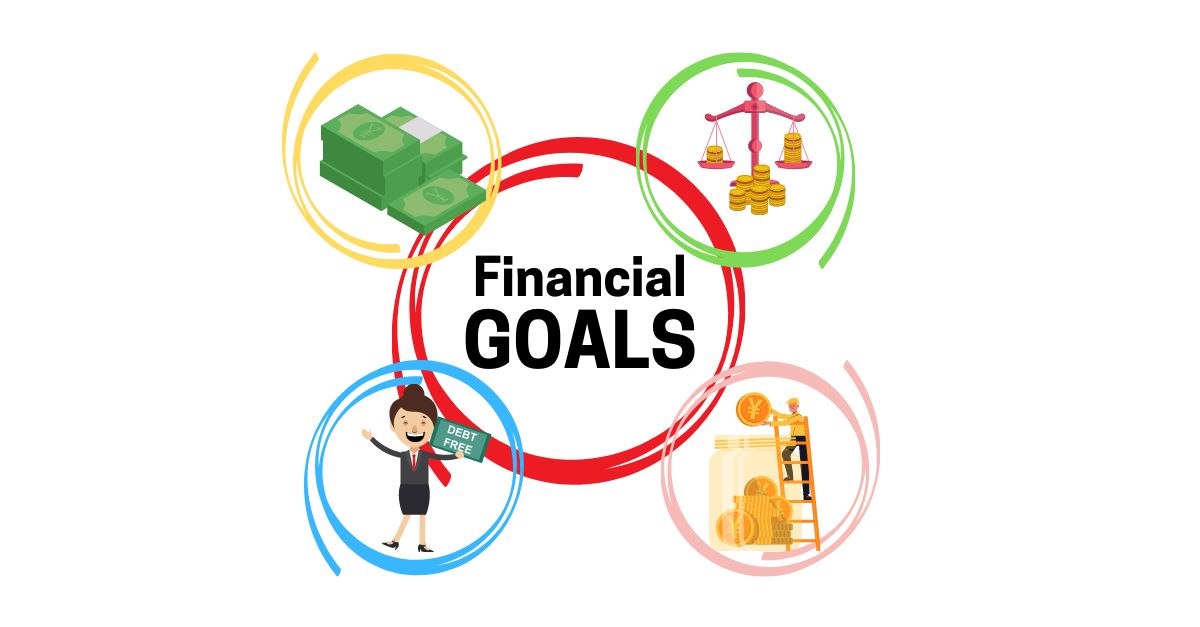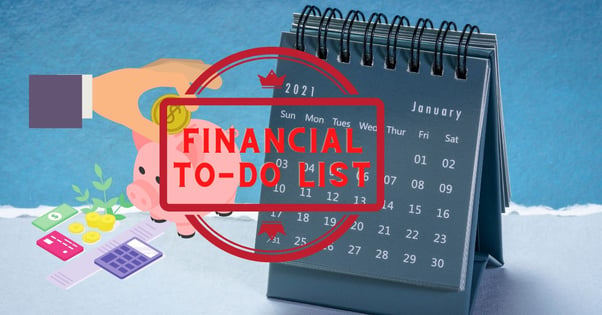Have you made any financial resolutions this year?
You should if you haven't done it yet.
It's important that you have a plan as to how you'll manage and grow your finances at the start of the year. This is especially true if your financial achievements in the previous year were less than impressive.
With a goal in place, you can:
- Create a realistic plan
- Keep track of your progress and adjust when necessary
- Identify your priorities and focus on them
- Be accountable for anything you decide to do, money-wise
Most importantly, you'll have reasons to celebrate. Say the plan was to pay off an outstanding debt within three months by allocating $350 per month as repayment. This is deducted via auto-pay.
To see the debt amount drop calls for a glass of wine or a piece of cake. To finally pay it all off deserves fireworks. After all, you're officially debt-free!
For your personal finance story to have the same successful narrative, you must take a strategic approach with your financial to-do list.
Since what you’ll do in January will have an impact on the rest of the year, focus on planning and budgeting.
Financial Checklist for January 2021
Week 1: Run a financial inventory
Before any sound planning can be done, you must first have a clear view of your financial habits.
- Is your spending out of control?
- Where can you rein in your spending?
- Are you earning more than what you're spending?
- How much money do you actually have saved?
- Where do most of your money go?
- Is there a rough balance between your income and expenses?
- How much money do you have left at the end of each month?
Your answers will tell you the true state of your finances, whether it's in the black or in the red. It's going to be a rough ride ahead if you're spending more than you're earning.
In 2020, global retail sales hit USD23.36 trillion, with retail e-commerce sales reaching USD3.53 trillion. You might have contributed a good percentage of this.
Time to pull back and make some changes with the way you view and use money.
How to get a clear view of your personal finances
It’s hard to make financial decisions or adjustments when you don’t see the actual figures. So get your pen and paper or spreadsheet ready and list the following:
- All your major expenses
- All your monthly payments (cable bills, internet, etc.)
- All your debts and the minimum repayments required
Then, compare all these with your monthly income.
If your calculation shows you have money left but you're running a deficit, run the numbers again.
If your calculation shows you're barely scraping by, take a hard look at your expenses and see where you can cut back.
- Do you really need that cable subscription?
- Maybe you can lower your phone's subscription plan?
- How about shopping for a lower-rate home or health insurance plan?
Once you have the extra funds, make it a goal to slowly get rid of your debts. Make this a priority, so you can free up funds you can use to save or invest.
You should also set aside a small amount for random expenses. $100 should be enough to indulge once in a while or to purchase things that need replacing.
Week 2: Set SMART financial goals

Now that you know how much you own and how much you owe, it's time to create goals to help you keep the "owe" to a minimum and the "own" to optimum or even maximum.
You're probably familiar with the S.M.A.R.T. methodology of goal-setting. The same can be applied to your financial goals.
Specific
Set specific goals as much as possible to achieve the outcome you’re after. Don't just say "I want to make more money," get down to specifics. You'll get a second job or take on extra projects to earn more. Or, you learn a new skill to get a promotion and a pay rise.
Measurable
Your goals must have clear benchmarks so you'll know you've achieved them. Instead of saying "I want to save money," say "I will spend $100 less each month so I can save $600 in six months."
Achievable
Always ask yourself if the financial goal you set to achieve is feasible or possible. Sure, it's always good to aim high, but what are the odds of you making such lofty goals happen? Achievable goals also help you spot potential challenges and find corresponding solutions.
Relevant
What's the point of creating a financial goal when it doesn't fit in your overall plan? A goal to save up for a car when you have sufficient savings is a waste of energy.
Time-bound
Your goal must have an end date to keep yourself accountable and to keep track of your progress. Doing so will also help you identify how you can break down your goals into smaller, actionable ones. Based on a previous example, you can hit your goal of saving $600 in six months by spending $100 less for the next six months.
Here's another example of a SMART financial goal.
Goal: Pay off student loans of $10,000 by December 2021.
This means you'll have to allocate approximately $833 each month towards the debt. Given your income, it's definitely feasible.
Your inventory shows you only have an extra $500 once all other expenses have been paid and you've left $80 as wiggle room. You can earn $333 from a second job or extra projects.
Stay the course for the next 12 months and you'll definitely succeed.
Week 3: Create a monthly budget
It's hard to keep track of your income and spending without a monthly budget.
Yes, it must be done monthly even when your expenditures are the same, so you stay accountable and on schedule. No more excuses for not paying your credit card on time.
For your convenience, download a budgeting app on your smartphone so you can keep your budget close at hand. Depending on the app, you can track your expenses, break them down into categories, and project how much you can save when you cut down spending in certain categories.
Some of your options include:
Mint not only helps you with budgeting but also tracks and categorises transactions, notifies you when you go over budget, and sends reminders for upcoming payments, among others.
YNAB (You Need a Budget) uses the zero-based budgeting method where the difference between your income and expenses equals zero each month. The app lets you set goals, customise spending categories, and contribute to savings.
PocketGuard automates budgeting, spending optimisation, and growing your savings. It also shows you where to find opportunities to save on service costs.
Honeydue is a free budgeting app for couples that automatically sorts your expenses into categories and shows you and your partner your bank accounts, loans, credit cards, and investments in one place.
Wally keeps track of your income and expenses and shows you the remainder of your budget to prevent you from overspending.
Week 4: Get your finances in order

Now that you know the state of your finances, your goals for 2021, and what challenges you must face to realise your plan, it's time to make some changes.
- To avoid missing out on debt payments, set up auto-payment. Make sure your account has enough funds to cover the cost of repayment.
- To gain extra cash while still looking for a second job, return unwanted holiday gifts with a 30-day return period. Use the refund towards your savings.
- To keep credit card debts to a minimum, only use cash for the next two weeks to a month. Who knows? You might discover you're not too dependent on your credit card.
- To grow your finances and build wealth, invest or trade. This might require upgrading your skills from simple budgeting to investing or trading, but the returns from your efforts will be worth it. So look into Forex trading for beginners, for example, or stock investing.
- To reduce or control spending, adjust your expectations, change your spending habits, and match your standard of living with your income.
Learn the 5 Financial Habits Every Young Person Should Cultivate
It's also a great idea to analyse the source of your financial problem. For example, if overspending is a means to satisfy an addiction, you must seek professional help and counselling. Otherwise, the problem will persist.
Be financially solvent throughout 2021
As early as now, create a plan to ensure you have more assets than liabilities throughout or by the end of the year. You might run into bumps along the way, but you won't be drowning in debt because your finances are able to support you. Your probability of success is high as long as you stick to the plan and keep emotions out of your financial decisions.
Ready to build and grow your wealth in the world's largest financial market? No better place to start than right here with us! Begin trading with Fullerton Markets today by opening an account:
You might be interested in: Leverage the Power of PipBox, Double Your Income Without the Hassle















